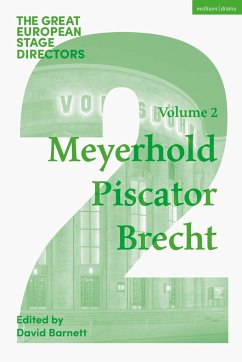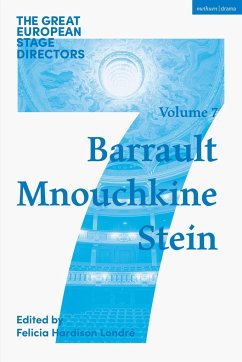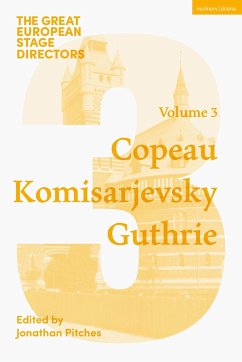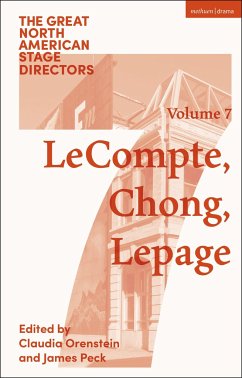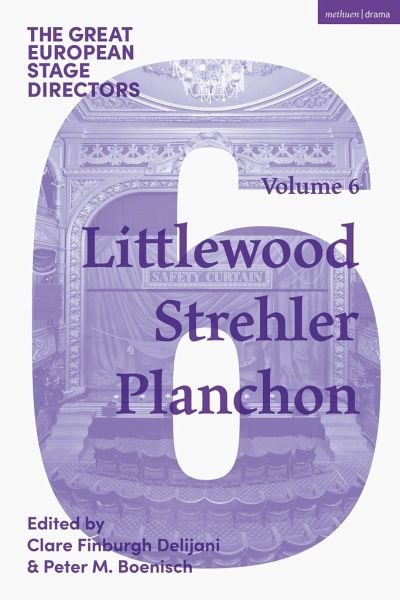
The Great European Stage Directors Volume 6
Littlewood, Strehler, Planchon
Herausgeber: Delijani, Clare Finburgh; Shepherd, Simon; Boenisch, Peter M
Versandkostenfrei!
Versandfertig in über 4 Wochen
30,99 €
inkl. MwSt.

PAYBACK Punkte
15 °P sammeln!
This volume examines the work of Joan Littlewood, Giorgio Strehler and Roger Planchon, demonstrating how these three directors take up key aesthetic prompts from earlier innovators - Stanislavski, the modernist avant-garde and not least Brecht - and thereby prepare the ground for contemporary, politically-engaged 'directors' theatre'. It argues that, in creating their major productions in the prosperous 'glorious decades' that followed the devastation of the Second World War, they represent a first expressly 'European' generation of theatre directors. Revisiting works from the classical dramat...
This volume examines the work of Joan Littlewood, Giorgio Strehler and Roger Planchon, demonstrating how these three directors take up key aesthetic prompts from earlier innovators - Stanislavski, the modernist avant-garde and not least Brecht - and thereby prepare the ground for contemporary, politically-engaged 'directors' theatre'. It argues that, in creating their major productions in the prosperous 'glorious decades' that followed the devastation of the Second World War, they represent a first expressly 'European' generation of theatre directors. Revisiting works from the classical dramatic canon by drawing on popular theatre traditions, and reaching out to spectators beyond the educated middle-class elite, they put theatre in the service of uniting a traumatized continent. This study posits that for Littlewood, Strehler and Planchon, theatre has the capacity to create communities.



